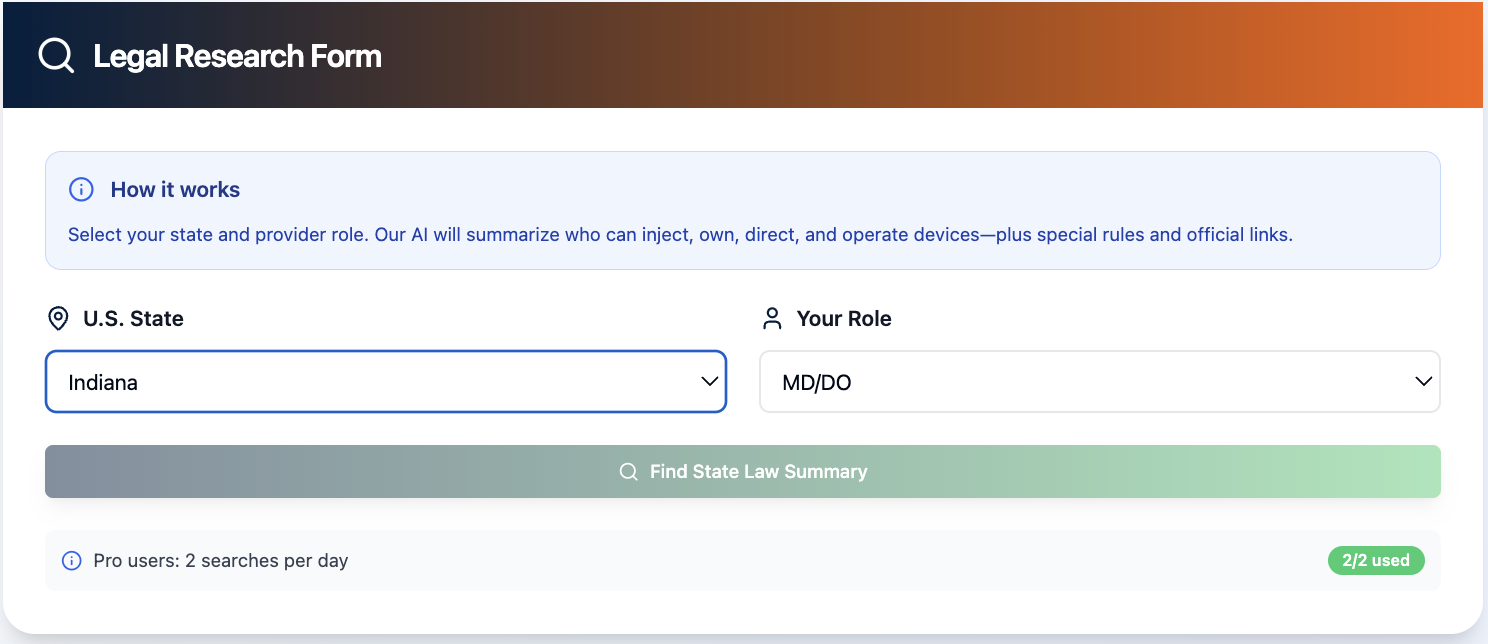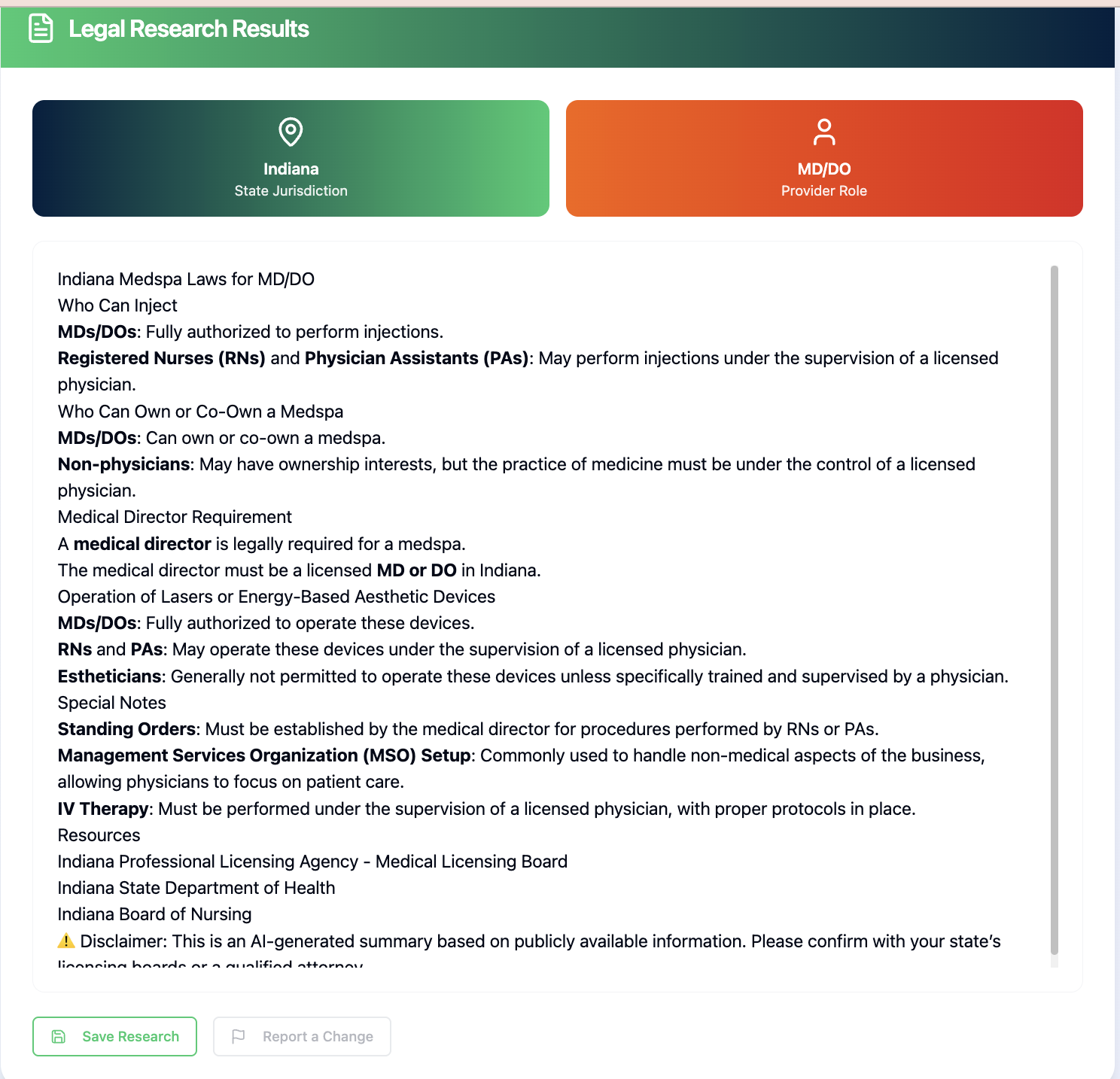If you’ve ever Googled “Can an RN do Botox in [my state]?” you’ve probably walked away more confused than when you started. Rules around injectables vary wildly, and most sources sound like they were written by a lawyer for other lawyers. Medspa owners don’t need more jargon — they need clarity.
Why This Matters
Injectables are the financial engine of most medspas. But who can legally perform them depends on three key factors:
- Your state’s medical practice laws
- The provider’s license type (RN, NP, PA, MD, DO, etc.)
- Whether the provider is practicing independently or under supervision
Missteps aren’t just a compliance risk — they can trigger board investigations, fines, or worse: a forced shutdown.
The Three “Buckets” of States
Across the U.S., laws generally fall into three broad categories:
-
Physician-Only States: Only MDs/DOs can legally perform injections. Non-physicians may assist under direct supervision but cannot independently inject.
-
Delegation States: A physician can delegate injectables to RNs, NPs, or PAs — but supervision requirements vary (direct vs. indirect).
-
Independent Practice States: Nurse practitioners (and in some cases PAs) can perform injections under their own license, with no physician supervision required.
Provider Breakdown (General Trends)
-
MD/DO: Always authorized to inject.
-
NP: Independent in some states, delegated in others.
-
PA: Usually requires physician delegation, rules vary by state.
-
RN: Can inject only if delegated by a physician (or NP/PA in some states). Cannot diagnose or prescribe.
-
LPN/Esthetician: Generally prohibited from injectables — even if “trained.”
Practical Example
-
In California, only MDs/NPs/PAs can inject; RNs can inject under supervision.
-
In Arizona, NPs have independent practice authority and may inject without a supervising physician.
-
In Texas, delegation is required; RNs cannot independently inject.
The Bottom Line
If you’re an RN injector dreaming of opening your own medspa, or a non-physician wondering if you can hire injectors, the short answer is: it depends on your state.
The long answer? We’ve built a tool to give you clarity in seconds.
Note: This list is a general guide. Specific requirements, such as the level of supervision needed, additional certifications, or training, may vary. Always consult with your state’s medical board or regulatory agency for the most up-to-date and accurate information.
Try the Free Tool: State Law Finder
“Type in your state, and instantly see who can inject, who can own, and what level of supervision is required.”















